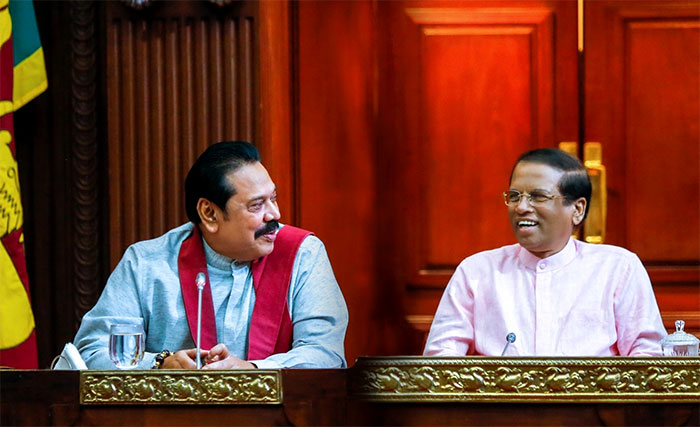Sri Lankan Tamil parties reject president’s call to support controversial new PM

Sri Lanka’s main Tamil parties have turned down a call from President Maithripala Sirisena to support his newly appointed prime minister in a likely floor test in parliament this month, the parties said on Friday.
Sirisena triggered off a political crisis on the island by sacking Ranil Wickremesinghe as prime minister and appointing controversial opposition leader Mahinda Rajapaksa to the job last month.
Wickremesinghe has challenged his ouster as unconstitutional and sought a session of parliament to determine who holds a majority. Sirisena met the Tamil National Alliance (TNA) to persuade the main minority group to drop its opposition to Rajapaksa who led the country to a crushing defeat of Tamil separatist guerrillas when he was president, but who is accused of human rights violations.
“President asked the TNA to abstain from voting, but we said the abstention would lead to legitimising an unconstitutional move,” M.A. Sumanthiran, a TNA spokesman, told Reuters.
Buddhists make up about 70 percent of Sri Lanka’s 21 million people and ethnic Tamils, most of whom are Hindus, about 13 percent. Muslims and other communities make up the rest.
Western nations led by the European Union are concerned that Sri Lanka’s halting steps toward a national reconciliation and justice for the victims of the war crimes will be endangered by the return of Rajapaksa.
Sirisena has faced criticism for sacking the premier in a sudden move last month and plunging the country into a political crisis. Since then he’s been trying to bolster the new administration.
Mano Ganeshan, the leader of another minority Tamil party, said the president had suggested three options at the meeting.
“The first, he said we can join the government accepting ministerial positions. If not, he asked us to remain neutral in the parliament. The third option was not to support Wickremesinghe saying that he and Ranil Wickremesinghe can’t work,” Ganeshan told Reuters.
Both Wickremesinghe and Rajapaksa have maintained they have the parliament majority. The house will sit on Nov. 14. Political parties have accused each other of trying to engineers defections.
The uncertainty has already dented investor sentiment on currency, bond, and stock markets. The rupee hit a record low last week, before appreciating due to central bank intervention, market sources have told Reuters.
The bourse has seen an outflow of 7.2 billion rupees since the political crisis unfolded, while the bond market suffered an outflow of 11 billion rupees, mostly on the three market days after the crisis.
The yields in Sri Lanka’s sovereign bonds have risen between 109-260 basis points, raising the risk of making the island nation’s borrowing cost expensive.
(Reuters)

Latest Headlines in Sri Lanka
- UN pledges support for Sri Lanka’s industrial and SME development March 13, 2025
- Former Boossa Prison Superintendent shot dead in Akmeemana March 13, 2025
- Police search Sagala Ratnayaka’s residence amid hunt for IGP Deshabandu Tennakoon March 13, 2025
- Another Middeniya triple murder suspect arrested at BIA while fleeing March 13, 2025
- Court of Appeal to rule on IGP Tennakoon’s arrest warrant on March 17, 2025 March 12, 2025


